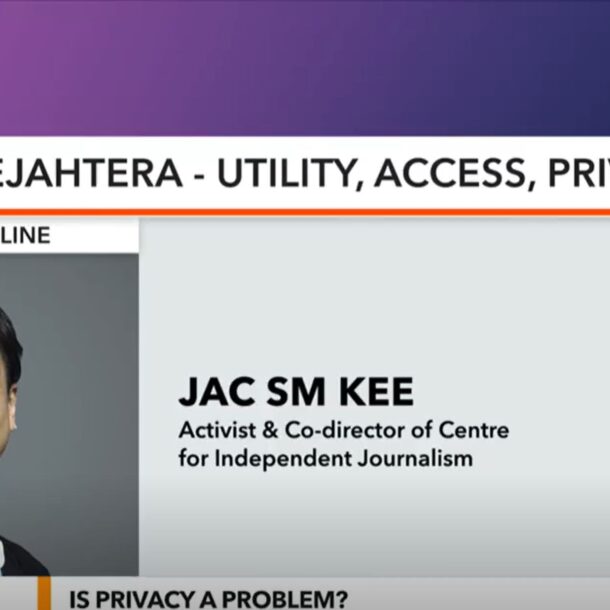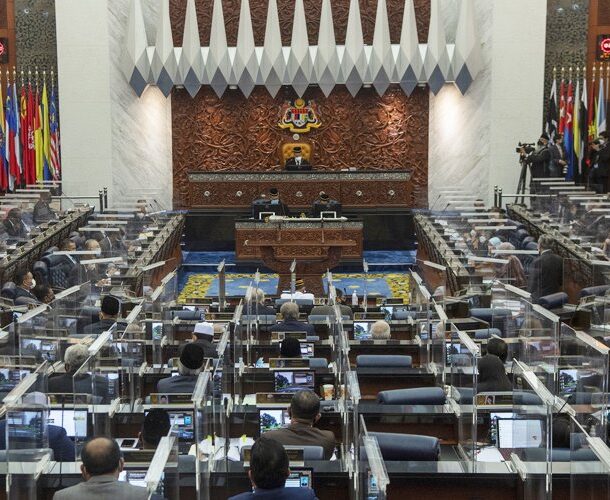
Malaysians Have the Right to Know! CIJ And C4 Center Call to Strengthen Legal Guarantees For Access To Information In Times Of Crisis
In conjunction with the International Day for Universal Access to Information (IDUAI) on 28 September, the Centre for Independent Journalism (CIJ) and Center to Combat Corruption & Cronyism (C4 Center) wish to reiterate the importance of the Right to Information (RTI) and the need for the protection and upholding of our RTI by the State and its actors in times of crisis. With COVID-19 causing chaos and complexity, access to reliable and verified information is more important than ever.
IDUAI was first recognized in 2002 and 2015, UNESCO declared 28 September as International Day for Universal Access to Information. This year’s theme is “The Right to Know – Building Back Better with Access to Information” highlights the role of access to information laws and their implementation to build back strong institutions for the public good and sustainable development, as well as to strengthen international cooperation in promoting and implementing the Right to Information (RTI) as a fundamental human right.
Currently, in Malaysia, only Selangor and Penang have Freedom of Information (FOI) enactments, which recognise and uphold the fundamental RTI within state boundaries. Malaysia does not have any other overarching law for government-held data and these state-led enactments cannot override the federal-level Official Secrets Act 1972 (OSA). This law and other similar laws, such as the Evidence Act, Sedition Act and specific Penal Code provisions have been arbitrarily used to silence dissidents and advocates of transparency and accountability. These secrecy laws also restrict public knowledge and government oversight, which allows corruption and mismanagement to continue without consequences.
We reiterate the numerous calls to abolish the OSA, Sedition Act, Section 203A of the Penal Code, and other secrecy laws that restrict the public’s access to government-held data. Without the repeal of these laws, freedom of information will continue to be severely limited in Malaysia.
As we continue to battle the COVID-19 pandemic and related infodemic, we often hear about environmental issues such as landslides in Penampang (Sabah), Cameron Highlands (Pahang), de-gazettement of forest reserves (e.g. Kuala Langat Northern Forest Reserve, 21 times degazettement of Bukit Cerakah forest reserve) and very little information are available publicly. These incidents not only affected local communities but also Malaysians at large, where access to information is limited. This year alone, there have been several cases of violations of people’s right to information including Shah Alam City Council (MBSA) denying media from covering its public hearing, concealing COVID-19 related information, and failing to disclose mega infrastructure project costs.
Timely disclosure of information promotes and restores public confidence. This will facilitate the public in being rightly informed and offer opinions on issues that affect them, including holding the government and its related bodies and officials accountable. It promotes constructive participation in any debates or discussions related to specific decision-making processes of public interest, thus ensuring transparency, and enhancing participatory democracy, good governance and strengthening rule of law.
In order to improve the current situation, we urge the government to increase its government personnel and provide adequate training for these information officers. We reiterate that any measures to tackle COVID-19 and which have the potential to restrict access to information must be legal, necessary, proportionate, and temporary, with the sole aim of mitigating the immediate public health crisis. In this regard, the government must work towards ensuring fair and equal access to all media outlets to all timely information related to the crisis and public importance.
Furthermore, the principle of maximum disclosure of documents of public interest must be adhered to by the State and a harm test should always be administered to determine legitimacy, necessity, and proportionality before restricting access to information and criminalising its disclosure. No one should be punished on national security grounds if their disclosure of information does not cause harm and the public interest in knowing said information outweighs the harm from its disclosure.
CIJ and C4 Center hope the government will continue with the commitment to repeal the OSA and enact RTI legislation. It is time to replace the culture of secrecy at the federal level with a culture of openness to meet the growing public demands for transparency and accountability at all levels of governance.
#KitaBerhakTahu
#MyRightToKnow

28 September 2021
Prepared by:
Centre for Independent Journalism
Center to Combat Corruption & Cronyism (C4 Center)
